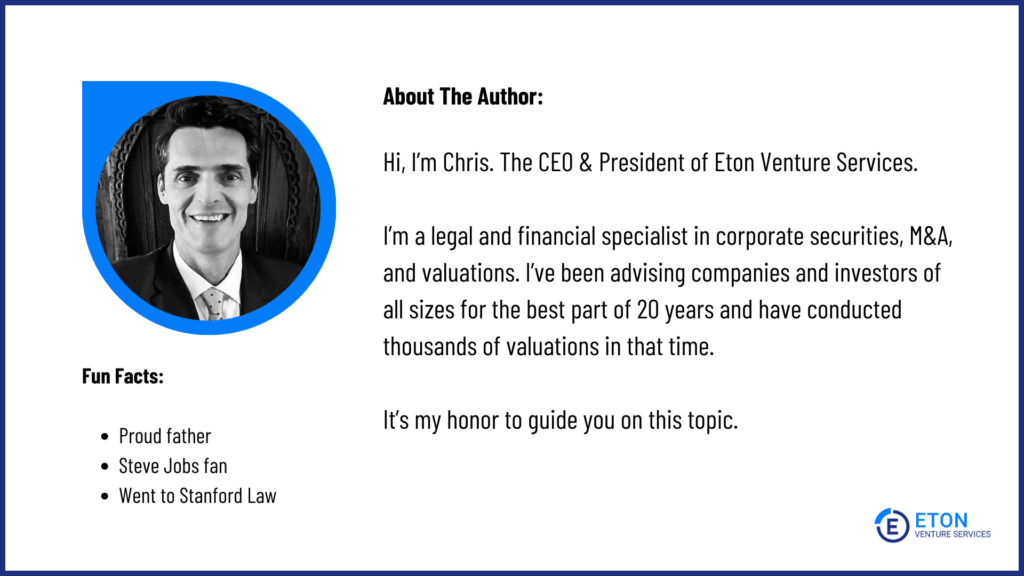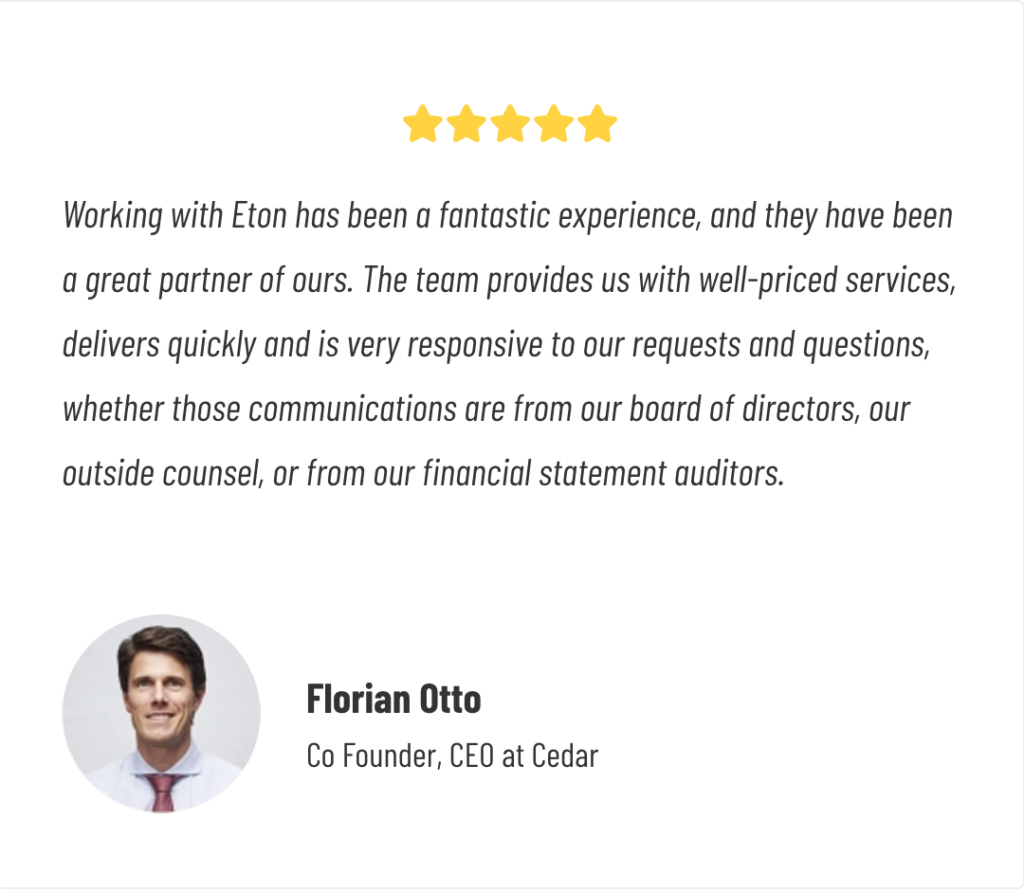Hi, I’m Chris Walton, author of this guide and CEO of Eton Venture Services.
I’ve spent much of my career working as a corporate transactional lawyer at Gunderson Dettmer, becoming an expert in tax law & venture financing. Since starting Eton, I’ve completed thousands of business valuations for companies of all sizes.

Read my full bio here.
A standard business valuation, especially those for small businesses with limited complexity, will cost between $2000 and $10,000.
But in some complex cases, they can cost up to $100,000.
The exact price depends on what valuation method is required, the complexity and size of your business, and the purpose behind the valuation.
No matter your size, there are some instances where your business valuation is more likely to exceed $10,000:
Because every business is unique and the circumstances driving the need for a valuation are different, we always provide custom quotes to clients based on a few defining factors.
They are:
These considerations are standard for any firm offering business valuation services. Let’s look at each in detail.
The larger and more complex your business the more time and resources needed to accurately value it. As time and resources go up, so does the cost.
For a standard valuation, large corporations can expect to pay between $50,000-$100,000 or more.
Mid-sized companies may pay $10,000-$50,000.
For example a company that earns $10M+ in revenue will fall somewhere between $15,000 and $30,000.
And smaller businesses, fall somewhere between $2,000-$10,000.
But why do larger, complex businesses require more resources?
Because they come with:
A major influence over the cost of your business valuation is the why behind it.
Is it for a merger? A sale? A court case? Something else entirely?
Each purpose brings unique considerations and risks that drive up or down the price.
For example, business valuation for the purpose of:
The methodology needed to complete the valuation will influence the final cost. This is because some are more rigorous and resource intensive than others.
An asset-based approach typically starts around $5,000 while an income approach begins around $10,000. Of course, there are instances where more than one approach is required.
These usually begin at $10,000.
Typically, the more experience a valuer has, the more expensive their business valuation services will be.
For example, if a valuer has years of experience completing business valuations for mergers & acquisitions they will charge more than someone who is just starting out.
You’re essentially paying for their ability to handle complex valuations and ensuring its accuracy.
These experienced valuers often have advanced credentials, such as:
The final, and likely most influential factor driving cost up is how quickly you need the business valuation completed.
The faster the turnaround, the more you’ll pay. This is because the valuator will need to rearrange their workload to accommodate your urgency.
A standard business valuation from Eton will take ____ days but if needed, can be done in as little as one.
We’re a boutique valuation specialist, so we offer careful customer service and top tier valuation expertise with affordable prices.
For most business valuations, we offer flat rate fee structures.
These include:
As part of your business valuation, we follow this 5-step process:
When choosing your business valuation provider, you want to strike a balance between affordability and quality. One shouldn’t eclipse the other.
To strike that balance, I recommend looking for a provider who:
At Eton, we have a dedicated team of legal and finance experts who are Big 4 trained and understand the nuances and complexities of all business valuation types.
Every report we produce is accurate and easy to understand, giving you and anyone else who needs it, a thorough understanding of your business and invaluable insights that can drive future success and better decision making.
We pride ourselves in our attention to detail and client relations. We spend time getting to know you and your business while being on hand to answer questions and provide peace of mind wherever we can. Our clients return time and time again for their valuation needs.

Our entire focus is on delivering independent audit-defensible, rigorous, and timely valuations without the inefficient back-and-forth of other firms.
For a cost-effective, quality business valuation service get in touch with us here.
Schedule a free consultation meeting to discuss your valuation needs.
Chris Walton, JD, is is President and CEO and co-founded Eton Venture Services in 2010 to provide mission-critical valuations to private companies. He leads a team that collaborates closely with each client’s leadership, board of directors, internal / external counsel, and independent auditors to develop detailed financial models and create accurate, audit-ready valuations.